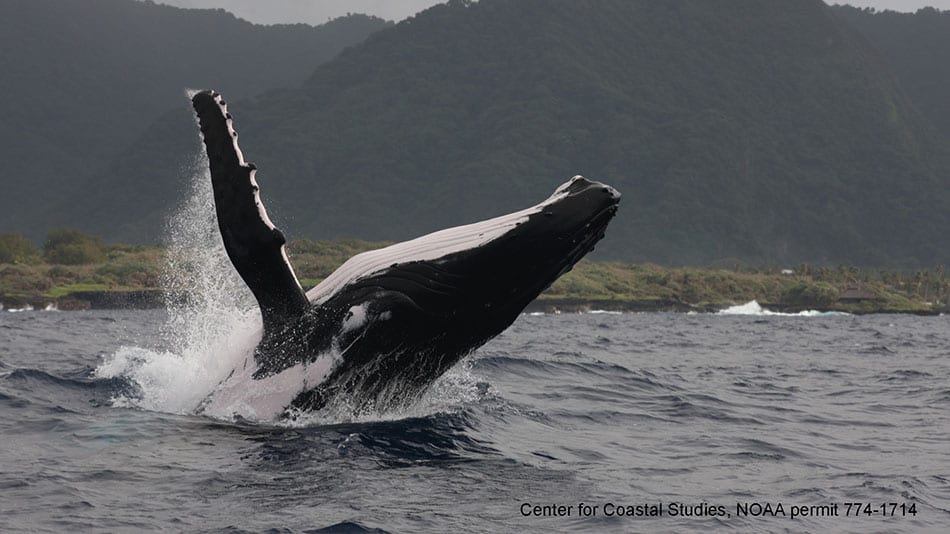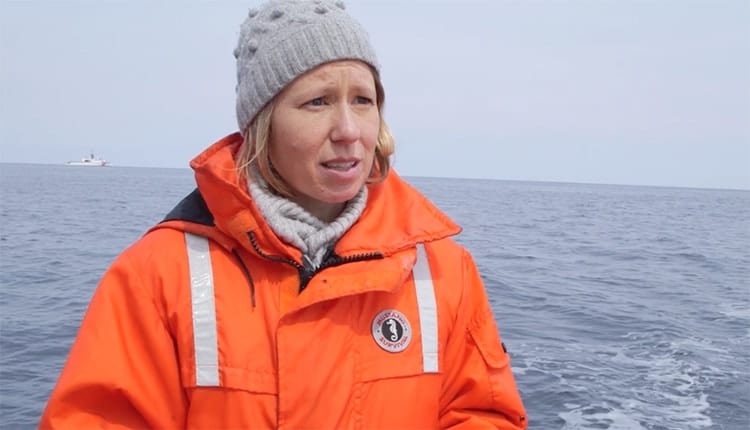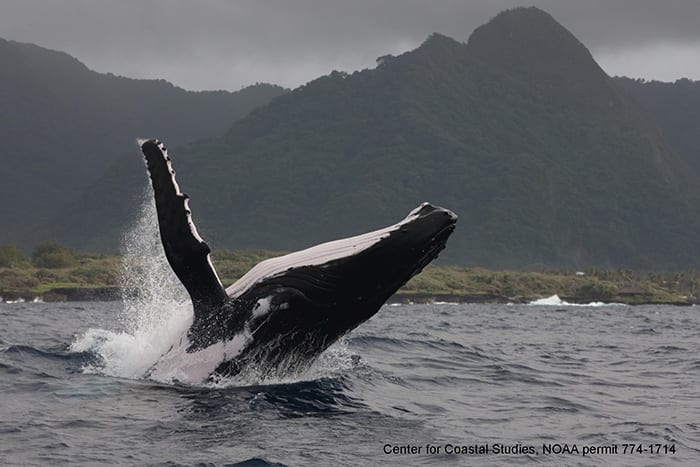Amy Apprill Featured in Science’s Video Series
 A humpback whale breaches off American Samoa. One of the sources of samples in Apprill’s previous research was skin shed by breaching whales. Image was taken by Provincetown Center for Coastal Studies under NOAA permit 774-1714 and the approval of the Government of American Samoa. (Provincetown Center for Coastal Studies)
A humpback whale breaches off American Samoa. One of the sources of samples in Apprill’s previous research was skin shed by breaching whales. Image was taken by Provincetown Center for Coastal Studies under NOAA permit 774-1714 and the approval of the Government of American Samoa. (Provincetown Center for Coastal Studies) December 16, 2015
Amy Apprill, a microbiologist at the Woods Hole Oceanographic Institution (WHOI), is one of the extraordinary women scientists featured in Science Magazine’s online video series, “XX Files: Extraordinary Science, Extraordinary Women.”
The eight-part series, which highlights diverse projects led by a group of impressive female scientists, began in early October. The video featuring Apprill’s work, “The Humpback Microbiome,” debuts on December 16 and is the last in the special series.
Apprill’s research focuses on relationships between microorganisms and marine animals. Like humans, marine animals have bacteria living on their skin. While scientists know some of the important benefits that skin-bacteria provide to human health—like producing antibiotics to naturally protect the body against harmful bacteria—little is known about the identity or function of skin bacteria in other mammals, such as whales.
The video illustrates some of the pioneering work that Apprill’s lab is doing in this field. By sequencing microbial DNA in skin samples from both healthy and sick or injured humpback whales, Apprill’s work is providing a baseline on “natural” whale skin biology and is also revealing how certain bacteria may be helping them stay healthy.
“The skin is the interface between the animal and the ocean it lives in,” Apprill said. “By studying the bacterial species on the skin of humpbacks, we can learn more about their health and interactions with their environment, which will aid in future conservation efforts.”
Apprill plans to expand the research to include other whale species from diverse habitats. Through an ongoing crowd-funding project, she hopes to finance the DNA sequencing of 96 skin samples obtained from humpback and minke whales living in Antarctic waters, which are relatively free of human-based impacts.
The Woods Hole Oceanographic Institution is a private, non-profit organization on Cape Cod, Mass., dedicated to marine research, engineering, and higher education. Established in 1930 on a recommendation from the National Academy of Sciences, its primary mission is to understand the ocean and its interaction with the Earth as a whole, and to communicate a basic understanding of the ocean’s role in the changing global environment. For more information, please visit www.whoi.edu.


